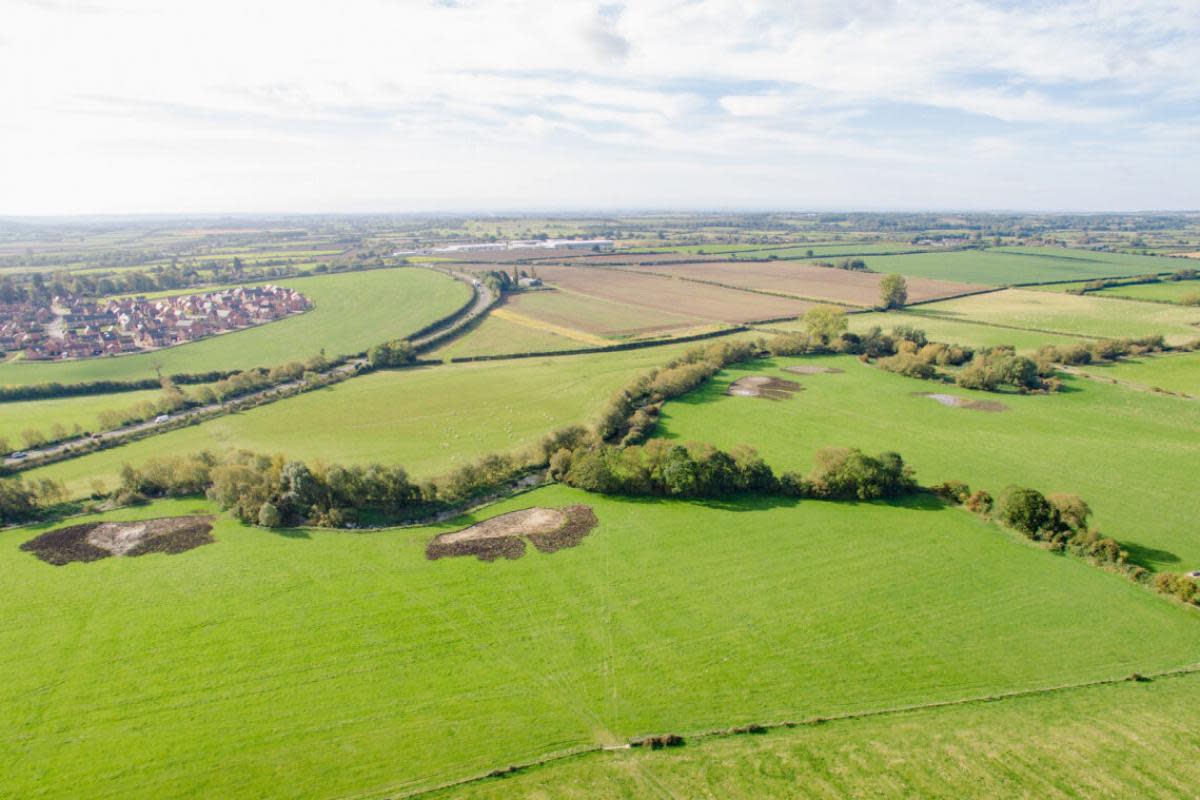Bucks council and farmer unite to create huge habitat bank

A huge environmental collaboration in Buckinghamshire brings the council, two key wildlife charities, and a pioneering local farmer together in the creation of a second local Habitat Bank.
This initiative is spearheaded by the River Thame Conservation Trust, the Trust for Oxfordshire’s Environment and Eddie Rixon of Lopemede Farm in Thame.
Marking a significant milestone in environmental conservation, the project promises to restore the Floodplain Wetland Mosaic along the River Thame for the next 32 years.
This includes the construction of pools and scrapes to retain water on the land, and the reintroduction of native floodplain meadow plant species.
However, public footpaths will be cordoned off to protect wildlife from the disturbance caused by dog walkers.
As part of the initiative, shelter belts composed of native tree and shrub species will be planted in rows to not only augment local wildlife diversity but also to protect Eddie’s cattle from adverse weather.
The project aims to provide significant benefits for the various bird species in the River Thame catchment, including the thriving population of Barn Swallows at Lopemede Farm.
Biodiversity Net Gain, becoming a legal requirement this year, intends developers to offset localised losses of biodiversity caused by housing or commercial developments by enhancing biodiversity at or near the site.
Lopemede Farm will provide land for Biodiversity Net Gain offsetting in anticipation of its need, thereby facilitating developers to readily purchase land units as and when required.
Ben Heaven Taylor from the Trust for Oxfordshire’s Environment said: "This project is an important step towards nature recovery in Buckinghamshire and towards the government’s ‘30-by-30' biodiversity target.
"It’s also a great example of an effective partnership between public and charitable bodies and a pioneering local landowner.
"We encourage other landowners in the region, including family farmers like Eddie Rixon, to follow suit."
Eddie Rixon, a fourth-generation farmer of Lopemede Farm, has drawn up a substantial 30-year strategy to transition the landscape from a monoculture of rye grass to agroforestry and shelter belts for increased nature, livestock, and farm profitability.
He hopes to manage the floodplain meadows in an eco-friendly way that allows natural usage of the river’s floodplain.
He enthusiastically said: "After two years in the making, it's exciting to finally get started on the wetland creation at Lopemede Farm, which is more important than ever as we hope to help contribute significantly to nature recovery and the biodiversity crisis, whilst achieving net-zero goals."
Praising the project, Thomas Broom, Buckinghamshire Council's Cabinet Member for Climate Change and Environment said: "This project is an important step towards delivering nature recovery through the Biodiversity Net Gain process.
"It provides the second legally secured local option for biodiversity units to be purchased by local developers as part of their requirement to deliver Biodiversity Net Gain through the local plan process."
He further expressed his anticipation for the successful progress of the restoration project over the next three decades and thanked all parties involved in establishing the project.
He said: "We extend our heartfelt gratitude to all those involved in setting up this project, and we eagerly anticipate witnessing the progress of habitat restoration over the next three decades.
"Strong, effective, long-term partnerships are essential for nature recovery.
"We thank all participants for their diligent work in establishing this project and look forward to observing the ongoing habitat restoration."

 Yahoo News
Yahoo News 
